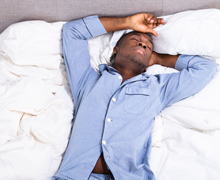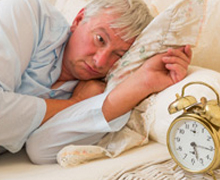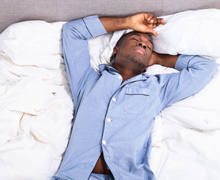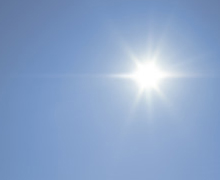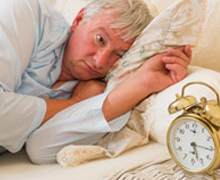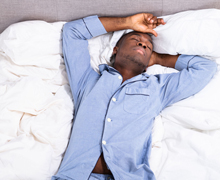Why 40-year-olds always look tired.
New research from the Medical College of Georgia at Augusta University shows that on average the years in the 40s is when busy Americans get the least amount of sleep during their lifetime.
Staff Reports,
June 20, 2022
Don't neglect your sleep if you are concerned about body fat.
Researchers from the Mayo Clinic found insufficient sleep led healthy study participants to consume more calories and increase their abdominal visceral fat by 11 percent over a short period of time.
Staff Reports,
April 18, 2022
Why sleeping in the dark is good for your health.
A new study shows even moderate light exposure during sleep can stress the heart and increase insulin resistance.
Staff Reports,
March 21, 2022
Get some good sleep if you want to take care of your heart.
New research from the University of South Florida shows poor sleep is associated with a threefold increase in the risk of heart disease.
Staff Reports,
February 25, 2022
Sleeping less leads to more junk food consumption for teens.
Researchers from Brigham Young University found teens are susceptible to weight gain and cardiometabolic diseases as a result of poor eating habits when they sleep less.
Staff Reports,
January 03, 2022
Nor enough light during the day may lead to not enough sleep at night.
Researchers at Monash University in Australia found that not getting enough natural sunlight each day has a direct impact on a person’s mood and sleep quality.
Staff Reports,
October 18, 2021
Research shows naps are no substitute for good sleep.
Scientists at the Michigan State University sleep lab found people who used short naps to make up for lack of sleep performed much worse in cognitive testing than those who got plenty of sleep in the first place.
Staff Reports,
August 16, 2021
College students can lower blood pressure and feel better with more sleep.
Researchers at Penn State found an increase of 43 minutes per night of sleep for college students in their study equated to a drop in systolic blood pressure of seven points.
Staff Reports,
May 24, 2021

